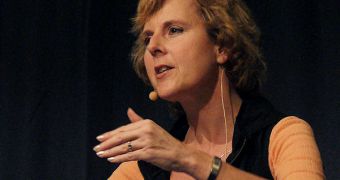In a move that developing nations called the “death of the African continent,” representatives of the countries that attended the 2009 UN Climate Summit, held in Copenhagen, decided to adopt a draft proposal for a new treaty. The document is the same we were telling you about on Saturday. Even then, it drew heavy criticism from the ALBA bloc, which includes countries such as Nicaragua, Venezuela, Cuba, Ecuador and Bolivia, as well as from the G77 Bloc of developing nations, which includes African and island-based countries. The new agreement was proposed by a group of five countries.
The document is basically a hoax, representatives, the media, and environmental activists say. There is nothing mandatory and legally binding about it. In short, it says that industrialized nations, emerging economies, and anyone else who wants to can propose greenhouse-gas commitments individually. These targets would then be put inside an international registry, for later verification and audit. In addition, developing countries would have to audit and report their domestic actions to the UN once every two years. The money they will be given via the fund set up by richer nations would be “subject to international measurement, reporting and verification.”
The so-called agreement is basically nothing but a blank sheet of paper. If nations do not want to subject themselves to the registry, they may choose not to do so and continue to pollute unabatedly. There is nothing the UN can do about this, because the new deal is not legally binding. This is the League of Nations all over again, some say. For those of you who don't know, the League of Nations was supposed to keep the world in peace after the First World War ended. Obviously, it failed miserably, and precisely because it could not take drastic actions against one of its own states.
Reactions to the new Copenhagen agreement, which comes after two years of negotiations, were naturally mostly negative. “For the first time in history, all major economies have come together to accept their responsibility to take action to confront the threat of climate change,” US President Barack Obama, who was part of the “team” that wrote the draft agreement, said. In addition to the United States, China, India, South Africa and Brazil also cooperated. This is obviously false, Nature News reports.
“Sudan will not be a signatory to a deal that will destroy Africa,” the country's representative said. The chief negotiator for the G77 group, Lumumba Stanislaus Di-Aping, said that the new deal was a “gross violation” of the UN process. In addition, he added, the document had no power to actually bind countries to their promise, which means that all states can back out on the deal, if they feel like it. This is why developing countries have been pushing for a modified Kyoto Protocol, rather than a new agreement.

 14 DAY TRIAL //
14 DAY TRIAL //